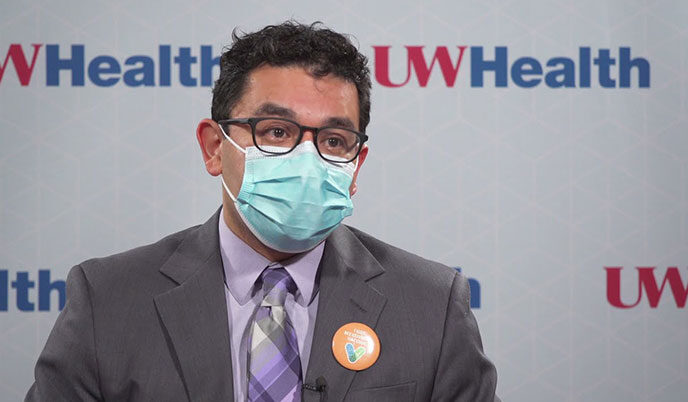
New UW study examines immune response to COVID-19 vaccine in patients with inflammatory bowel disease
A new study at the University of Wisconsin School of Medicine and Public Health is looking at the immune response to COVID-19 vaccines in patients with inflammatory bowel disease (IBD). Enrollment is open now for patients who fit the criteria.
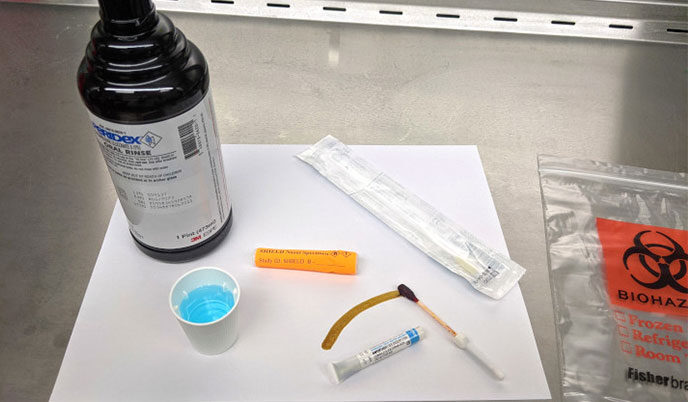
UW COVID-19 prevention study expands enrollment to essential workers
All essential workers who cannot perform work duties remotely are now eligible to take part in a prevention research study at the University of Wisconsin School of Medicine and Public Health. The study is investigating whether commonly used oral and nasal antiseptic, in addition to masks and hand hygiene, can help prevent COVID-19 infections. These workers include police officers, firefighters, daycare workers, grocery store workers, retail employees, restaurant staff, mail carriers and bus drivers, etc.

Study finds analyzing DNA in urine could help detect cancer
A study published this week in Science Translational Medicine describes how urinalysis could potentially be used to detect some forms of cancer.
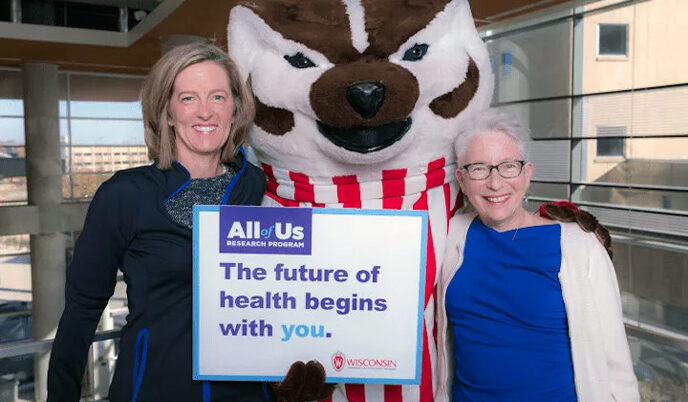
All of Us Research Program returns first genetic results to participants
Participants who donated biosamples, as part of the historic “All of Us” Research Program, may soon see a return of their genetic results.
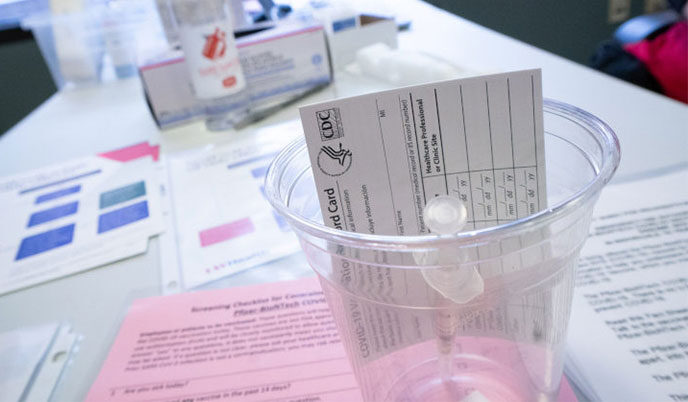
UW researchers develop tool to equitably distribute limited vaccines
The demand for COVID-19 vaccines continues to outpace supply, forcing public health officials to decide who should be first in line for a shot, even among those in the same pool of eligible vaccine recipients.
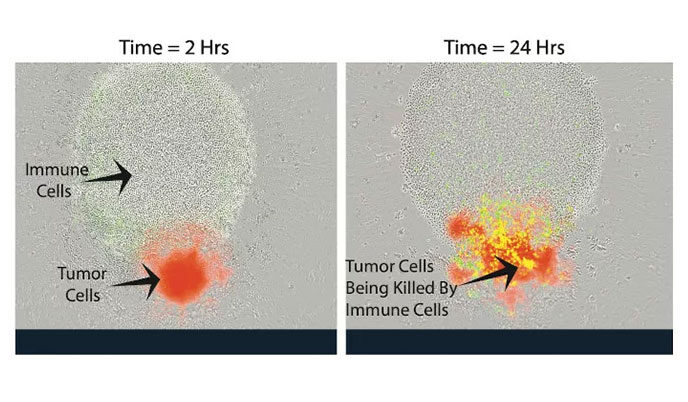
Jamey Weichert, Zachary Morris leading a team to develop new way to help immune system fight back against cancer
Scientists at the University of Wisconsin School of Medicine and Public Health are breaking new ground to make cancer cells more susceptible to attack by the body’s own immune system.
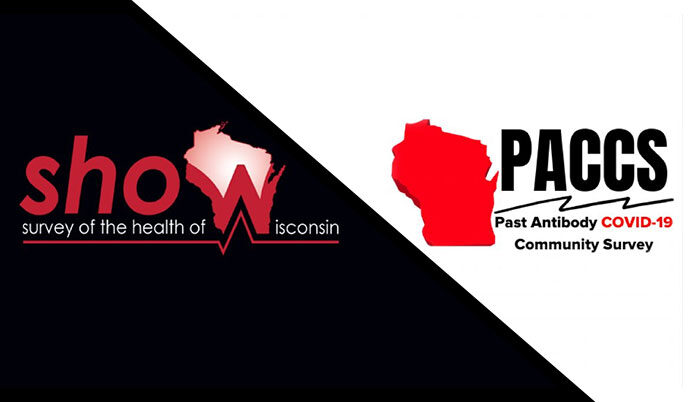
New statewide data show evidence of four-fold increase in recent COVID-19 infections
Preliminary results from the second wave of a UW–Madison study estimated 6.8% of Wisconsin residents have evidence of recent infection of COVID-19.
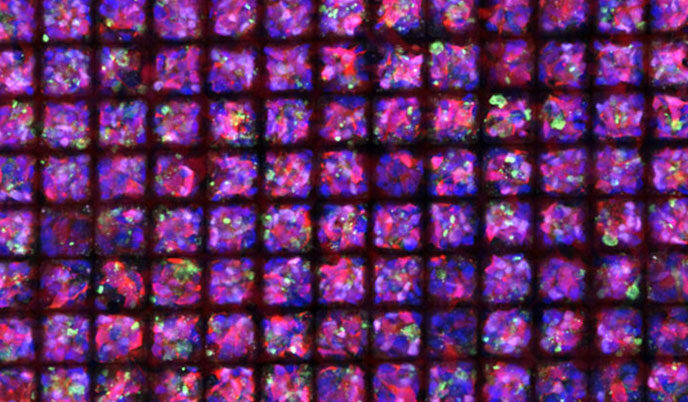
UW vision researchers partner with U.S. Department of Defense to develop stem cell therapy for combat-related eye injuries
Using an ingenious microscopic retinal patch, eye researchers at UW–Madison will develop and test a new way to treat United States military personnel blinded in combat.
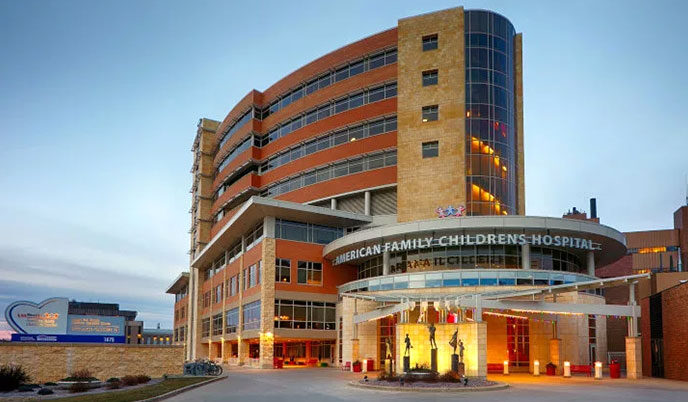
First-in-humans clinical trial to treat children with relapsed neuroblastoma opens at American Family Children’s Hospital
A first-in-humans clinical trial for children with relapsed or refractory neuroblastoma has opened at American Family Children’s Hospital (AFCH) and is being conducted by researchers at University of Wisconsin School of Medicine and Public Health. Neuroblastoma is one of the most common solid tumors in children. Patients who are classified as “high-risk” (about 40 percent of those diagnosed) have less than a 50 percent survival rate.
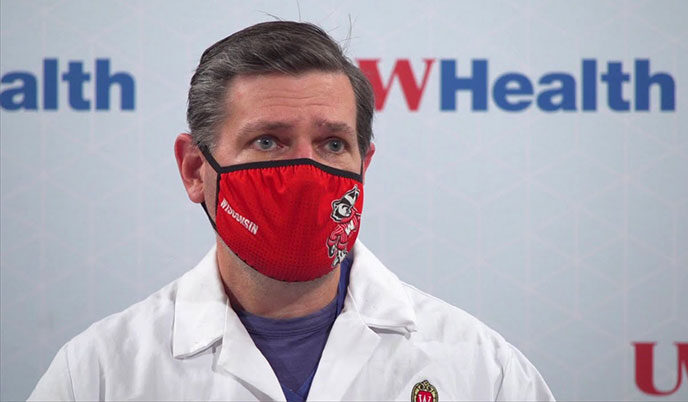
UW set to resume enrollment for AstraZeneca’s investigational COVID-19 vaccine
A clinical trial of an investigational COVID-19 vaccine has resumed in the United States after the FDA and an independent safety review board completed their review of a trial participant in the United Kingdom who became ill.
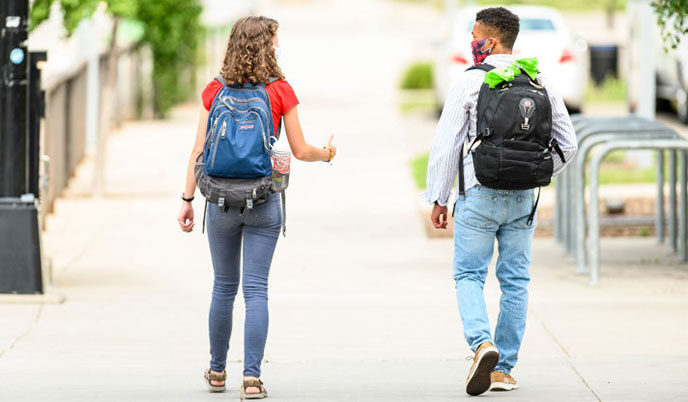
COVID-19 data model quantifies region-specific impact of social distancing orders
As the COVID-19 pandemic first took hold in regions across the United States in spring 2020, local officials, hoping to quell the spread of the virus, turned to the only actionable defenses available at the time: closing schools and businesses, banning mass gatherings, issuing stay-at-home orders and enforcing other social distancing measures.

UW studies investigate need for and impact of culturally aware mentorship training
Higher education institutions frequently offer mentored research experiences to increase undergraduate student interest, motivation and preparedness for research careers in Science, Technology, Engineering, Mathematic and Medicine (STEMM) fields.